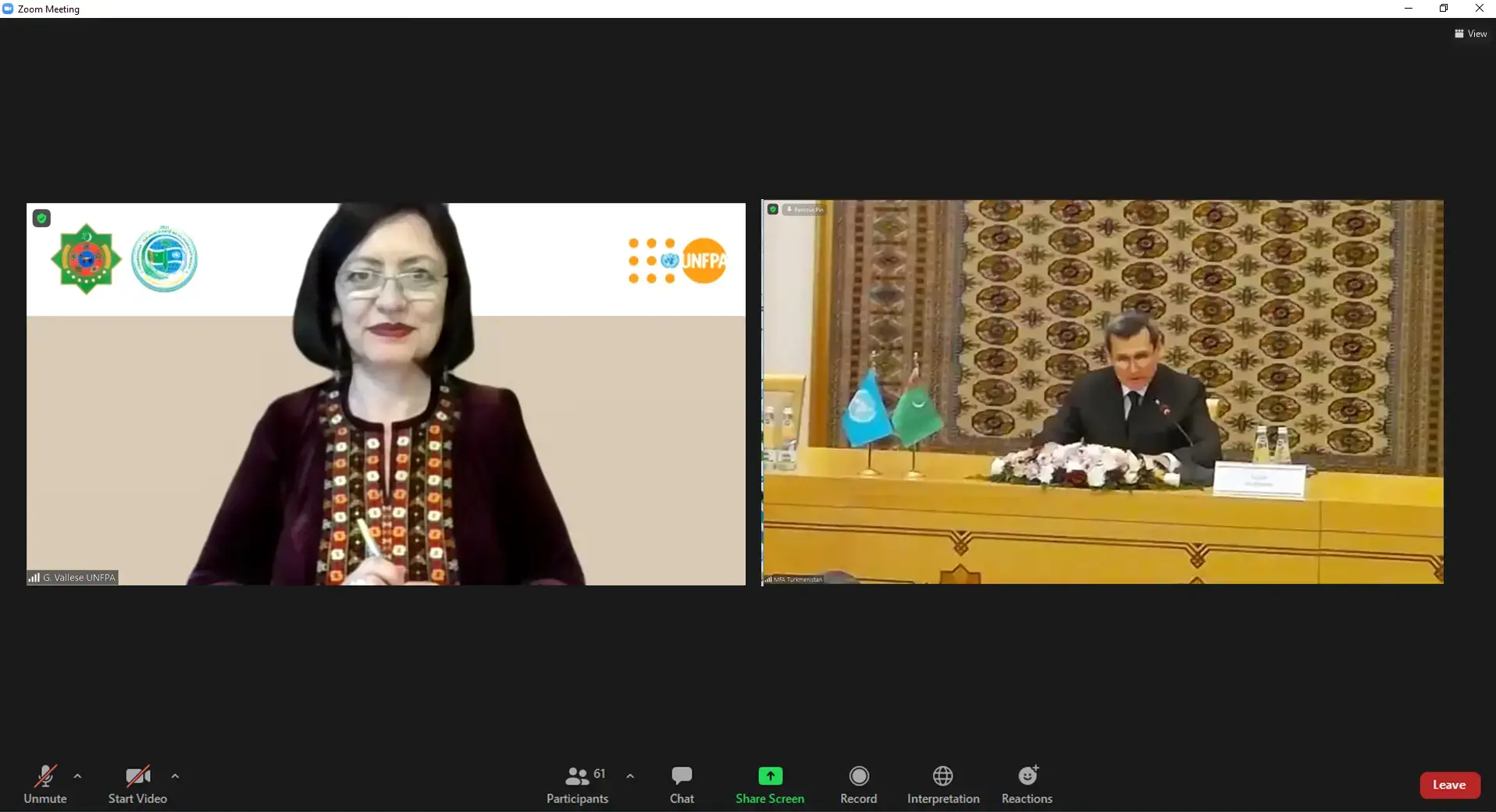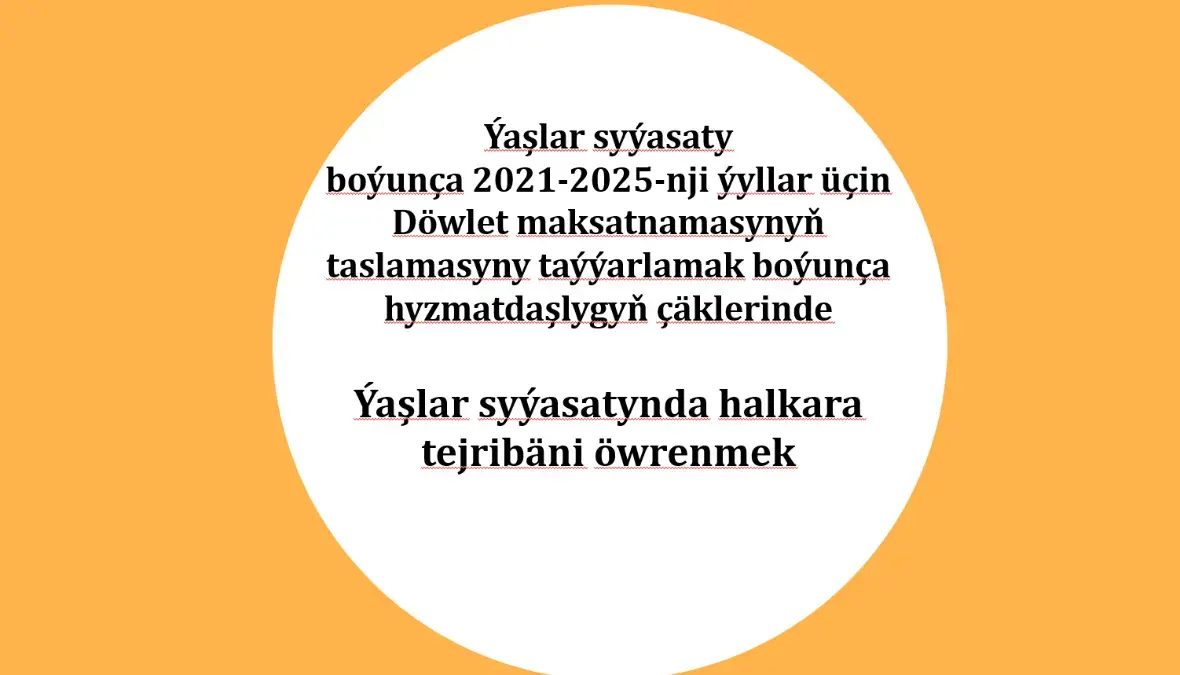Monitoring indicators adopted to measure the quality of education in reproductive health and gender topics
UNFPA continues to partner with the Ministry of Education of Turkmenistan in improving the quality of adolescent reproductive health and rights education at secondary schools of Turkmenistan. Education specialists from the capital and all velayats of the country have met in Ashgabat to discuss and agree on the set of indicators to measure the knowledge of the school students on reproductive health topics, a direct link to the quality of teaching the material. The monitoring indicators will also help measure the progress towards the relevant targets of the Sustainable Development Goals (SDGs).
The issues of reproductive health, gender equality and reproductive rights are being taught in 7 to 11 grades of the secondary schools of Turkmenistan. The quality of teaching of these issues is increasingly improving, as in the past years UNFPA and the Ministry of Education of Turkmenistan have jointly developed six national standards of reproductive health education, teacher’s competencies required to teach the subject, as well as the teacher’s manual to ensure that the methodologies used are interactive and effective.
Two-day intensive meeting focused on integrating the teaching norms and standards, and different ways of assessing it, for instance, through measuring the knowledge of students, to find out to what extent the taught materials have been internalized by the adolescents. Indeed, finding the right methodology is a challenge, considering that the subject does not only provide knowledge, but also life skills to be an effective communicator, to be able to think critically and make responsible life choices in regard to relationships and their health. The team of education specialists have agreed on the methodology and set of indicators that would reflect the level to which the students have been able to grasp the subject. This will be done through a specially designed questionnaire, which was developed during the meeting.
Specifically, the questions will test whether the students know the international and national legislation in the area of reproductive health and gender equality, can identify gender stereotypes, know traditional and universal values that allow us to practice reproductive rights and have healthy families. The questionnaire also reveals whether the youth knows different models of behavior, their critical thinking and conflict-solving skills, as well as assess the knowledge on leading healthy reproductive life. This includes correctly identifying the ways of preventing and acquiring the sexually transmitted diseases, including HIV.
During her opening speech, Ms. Bayramgul Garabayeva, UNFPA Assistant Representative in Turkmenistan congratulated the Ministry of Education of Turkmenistan for adopting the SDG target on substantially increasing the supply of qualified teachers. Academically well-trained teachers play a key role in ensuring the quality of education, especially in the area of reproductive health.
“UNFPA will continue to partner with the Ministry of Education in integrating the relevant SDG targets and indicators into the national development programmes and monitoring frameworks,” said Ms. Garabayeva. “Providing quality education in the area of adolescent reproductive health and rights for young people is critical for achieving the Global Goals. We stand ready to support the Ministry in measuring the progress of the target on continuously improving the qualification of the teachers to better cater the issues of reproductive health, reproductive rights and gender equality to adolescents in Turkmenistan.”
***
For additional information, please contact:
Kemal Goshliyev, Reproductive Health NPO
goshliyev@unfpa.org
Ene Tuyliyeva, Advocacy Communication Associate
tuyliyeva@unfpa.org
Tel: 488324
Web: turkmenistan.unfpa.org, tm.one.un.org




